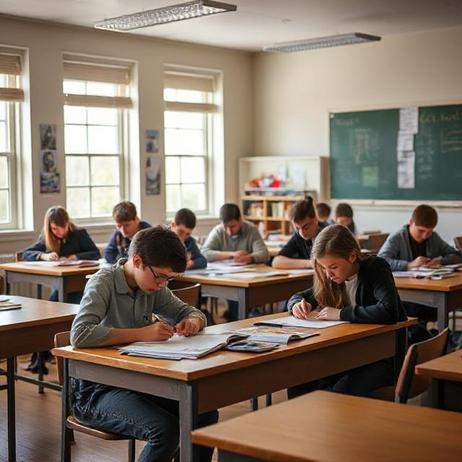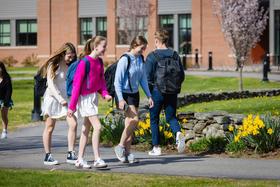Introduction
Choosing between a full-residential boarding school academic path and a public school honors program is a significant decision for families and students. In 2025, both options offer compelling advantages, but they differ in structure, culture, and purpose. This article examines how boarding school academics compare with public school honors programs—highlighting key differences, benefits, potential drawbacks, and guidance for parents, students, and educators.
Defining the Options
Boarding School Academics
When we refer to “boarding school academics,” we mean the full educational environment provided by a residential institution where students live on campus and are immersed in a structured academic and extracurricular setting day and night. Boarding schools often offer smaller class sizes, dedicated faculty mentors, living-learning communities, and around-the-clock support. For example, one overview of boarding education notes that students in such settings “learn to self-manage under supervision” and benefit from “an immersive education” in which teachers and peers are readily accessible.
Public School Honors Programs
A public school honors program typically exists within a non-residential public school district, offering advanced coursework, accelerated pace, and enrichment beyond standard classes. Honors programs may include honors versions of core subjects, AP/IB or dual-credit options. A profile of honors in K-12 describes how “honors classes address the same standards but go deeper into the content, at a much faster pace” and require higher expectations.
Structure and Academic Rigour
Curriculum and Pace
In boarding schools, the academic programme is often curated to be highly rigorous, with supervision, optional study sessions and faculty available beyond class time. For instance, one boarding school notes that 87% of its graduates felt well prepared for college, compared to much lower rates in public day schools.
In public school honors programmes, course content is often accelerated and deeper than the general track. As one guide puts it: honours courses cover the same standards but move faster and expect more independent work.
Class Size and Faculty Access
Boarding schools typically emphasise smaller class sizes and high faculty-student interaction. One review reports average classes of around 10-15 students in top boarding environments. Boarding School Review
Public school honours tracks may also reduce group size relative to general classes, but resource constraints often limit how small. The student-teacher ratio may still be higher than in boarding schools.
Cohort and Culture
Boarding school academics provide a 24/7 learning environment: students live on campus, which extends learning beyond classroom hours into dorm life, extracurriculars and peer study. This can foster a culture of intellectual curiosity and mutual support.
Public school honors programmes exist within the larger school community; students may be pulled out for honours courses but then re-merge with the general student body in other contexts. The honours cohort is often a subset rather than the whole experience.
Student Experience and Development
Independence and Life Skills
Boarding school academics emphasise independent living, time management and self-discipline. Students must manage their schedule, chores, study time, and social life in a campus community. One source highlights how boarding students develop self-reliance earlier than typical public school peers. blog.stlawrence.edu
Public school honors programmes emphasise academic challenge but do not always include the residential and holistic living components. Hence life-skills development may be less intensive or structured.
Social and Peer Environment
In boarding schools, the peer culture tends to be uniformly motivated and academically oriented — as one article points out: “a culture where achievement is respected.”
In public school honours programmes, the honours students may form a distinct subgroup within a larger school culture. The motivations of non-honours peers may differ, which can affect the peer academic climate.
Extracurricular and Enrichment
Boarding schools often provide rich extracurriculars integrated into daily life: athletics, arts, clubs, travel, service, learning labs. These are part of the immersive environment. midland-school.org
Honors programmes in public schools may offer enrichment (such as research projects, advanced seminars, leadership opportunities), but the level of integration and institutional investment tends to vary substantially.
Outcomes and College Preparation
College Readiness
Data from boarding environments suggest high readiness for tertiary education. One boarding school source reported 78% of students felt prepared for college vs. much lower for public day schools.
Honors programmes similarly aim to prepare students for college and advanced coursework, offering advanced classes, but the difference in readiness may hinge on how well the program is implemented and how students utilize the resources.
Transcript and Selectivity Impact
Being enrolled in a rigorous boarding school academic programme or a strong public school honors programme can boost applications to competitive colleges. The key is the depth of challenge, student achievement, leadership and growth.
In honors programmes, advantages include small seminars, research opportunities and recognition — qualities that appeal to admissions. collegeraptor.com
Cost and Accessibility
Cost Considerations
Boarding school academics come with significant cost implications: tuition, room and board, travel, and other fees. The immersive environment and high resources drive elevated cost.
Public school honors programmes are part of the public school system (often at no extra tuition cost to parents beyond standard fees). This makes honours tracks more accessible financially for a broader range of families.
Admission and Fit
Boarding schools often have selective admissions (academic record, interview, boarding readiness, family fit). They may welcome students from across regions or internationally.
Public school honours programmes often admit based on performance metrics (grades, teacher recommendation, testing) but are constrained by district resources and space.
Parents must assess whether a student will thrive in boarding (away from home) or within the family and local community.
Summary Comparison Table
| Feature | Boarding School Academics | Public School Honors Programme |
|---|---|---|
| Residential component | Yes — students live on campus, immersive setting | No — students commute from home |
| Class size & faculty access | Often very small classes, high faculty contact | Smaller than general track, but varies widely |
| Peer culture | Entire student body academically aligned | Honors cohort within larger varied student body |
| Curriculum pace & depth | High rigour, specialised programmes | Accelerated and enriched for selected students |
| Life-skills development | Strong focus on independence, time management | Academic focus; life-skills less emphasised |
| Cost & accessibility | High cost, selective admissions | Low incremental cost, accessible to local district |
| College preparation potential | Strong, holistic readiness for tertiary education | Strong academically, but depends on program strength |
| Social/emotional fit | Requires student comfortable away from home | Allows student to remain in local familiar environment |
Key Considerations for Families and Students
When weighing boarding school academics versus public school honors programmes, consider these factors:
Student temperament and independence: Does the student thrive in a residential, immersive context or prefer day-school with family support?
Academic ambition and readiness: Is the student seeking maximal challenge and breadth of environment or looking for accelerated enrichment locally?
Cost and logistics: Can the family afford boarding tuition, travel and other associated expenses? Is the local honours programme strong and well supported?
Fit of culture: Does the boarding school’s community, values, extracurricular options align with the student’s interests? Does the public school honours programme offer meaningful enrichment beyond standard coursework?
Long-term goals: For students aiming for highly selective colleges or global opportunities, boarding school academics may offer additional edges. For others, a strong honors programme combined with excellent local engagement may suffice.
2025 Update and Trends
As of the current year, 2025, boarding schools continue to emphasise innovation in curriculum, technology, wellbeing and global connections. One industry article lists “10 top reasons to go to boarding school,” emphasising that these institutions remain immersive, supportive and academically strong.
On the public school side, honours programmes are increasingly recognised for their ability to challenge high-achieving students and offer advanced coursework, though there remains variability in access, quality and student experience.
Conclusion
Both boarding school academics and public school honors programmes present strong opportunities for high-achieving students. The choice is less about “which is better overall” and more about “which is better for this student at this time.” Boarding school academics offer a deeply immersive, high-structure environment that fosters independence, academic rigour and college readiness. Public school honors programmes provide accelerated challenges within the familiar day-school setting, often at lower cost and with easier access.
Families should weigh academic needs, personal fit, cost, student readiness and long-term goals. The right match is one where the student is challenged, supported, motivated and engaged. With careful evaluation and realistic expectations, either path can lead to strong outcomes in 2025 and beyond.















